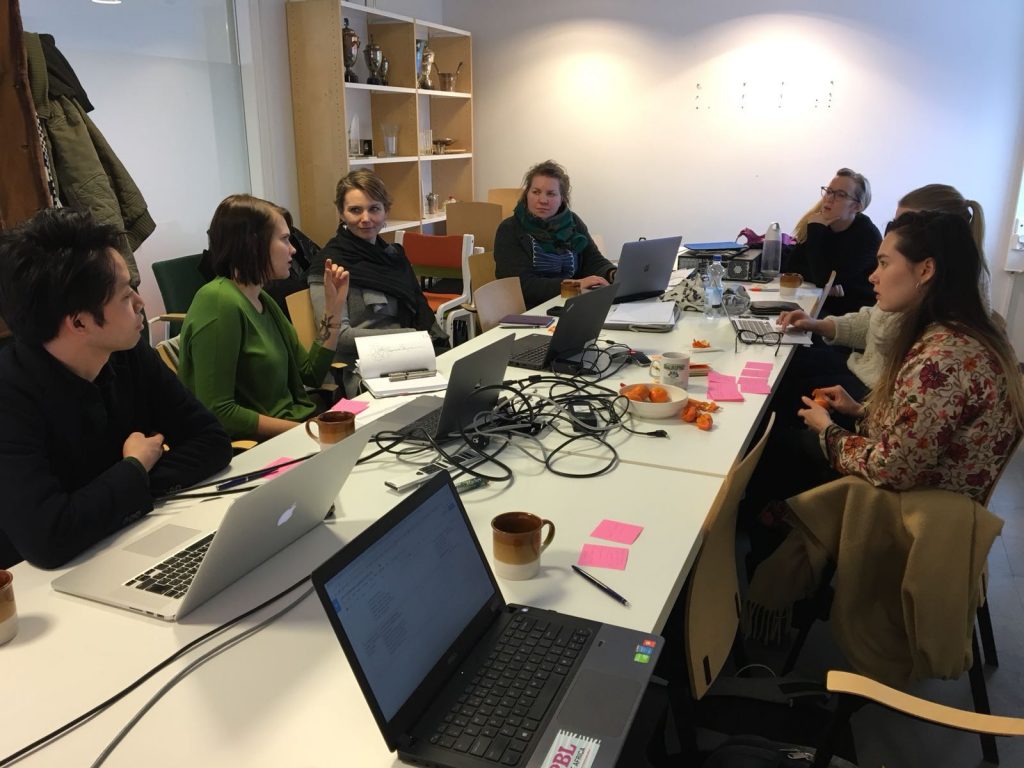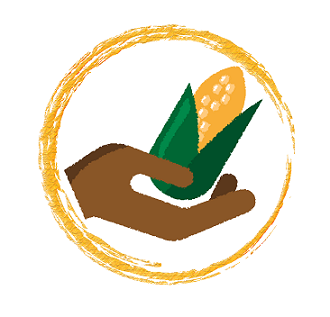
When we discussed our individual goals for the project, all of us mentioned the learning experience as the most important outcome. During the project, we regularly reflected on our work within the group, individually and also with our supervisors and clients. In this post, we will share our insights on what worked well and what could be done better in the IDBM Food Africa Project.
What was good?
- Strong alignment: from the beginning of the project, we clearly defined our roles and responsibilities in the project to make sure that everyone felt like they were a part of the team. The goal was to make sure that all aspects and deliverables of the project had someone making sure they happen.People took over different roles based on their learning expectations and expertise. We also held meeting sessions with our supervisor and clients to clarify their expectations and get aligned on the project objectives and ways of collaboration and communication. This way we could always reflect on what we have with what we knew were our clients expectations.
- Leadership that matters: In our team, each individual naturally took lead in different circumstances to contribute to the quality of team work. It happened not only when we held workshops to the rest of the team from our field of expertise but also in crisis situations when we needed initiatives to change.We let ourselves express our opinions freely and the person holding the “facilitator” role of the conversation changed depending on the topic under discussion as well as the needs of the conversation. This way of collaboration and dynamic team-work helped us maximise our learning and going outside our comfort zones as well as enhance our experience in trans-disciplinary work.
- Planning but being agile and flexible: We realise that trans-disciplinary teamwork itself is chaotic enough, so we planned carefully, step by step, how we can work to get things done properly. We tried different tools for planning and applied e.g. PDCA to keep track our work. We also created a weekly calendar to make sure everyone knew what was happening when and what was expected of them to proceed.However, things obviously did not always follow the plan smoothly and we needed to adjust and sometimes even completely change our plan to adapt to the situation. Being flexible is a very important factor that each of us needed to be aware of and accept it in this project to handle the complex issue/wicked problem as well as the different schedules and engagements with other work.
- Engaging different stakeholders: We utilised support from our clients and supervisors by hosting many meetings with them before, during and after the field trip to better understand the problem and deliver quality results that meet their expectations.We always followed up our meetings by email so even if someone from the larger network of stakeholders could not join us in the meeting, they still could contribute on our work remotely. We took advantage of our field trip to interact and engage different stakeholders as much as we could so we could learn from their expertise and perspective to put into our solution at the end.
- Handling conflict: We realised that things do not always follow our expectations and that communication in a trans-disciplinary team has it’s own challenges. There were times when we faced conflict or got stuck in not understanding one another in our discussions. In these moments we took a moment to reflect and calm down to look back at what’s really happening and then together find the way to move forward and improve.
What could be done better?
- Alignment with the process: Our project had people from different countries/disciplines with different ways of reacting to change and making sense of the world working together in a fast paced environment on a complex issue. In such complex settings one of the defining differences between team members and how content they felt with the process was how much structure they crave and do they embrace change and uncertainty. Some people in the team felt more comfortable with the chaos of the project since they knew it was a part of a process while for others it was incredibly uncomfortable. This difference we didn’t manage to solve and the feelings at the end of the project varied from person to person greatly. Some were happy with the process as a whole while for others it was not ideal.
- Co-creation workshop facilitation: We bring so many tools and knowledge for each other that sometimes the sessions were not as smooth as they could have been. The delivery and structures of the workshops could have been more clarified with stated and more fixed agendas so each individual could have been clear about what to do and how to best use the provided tool or method. However, the decisions to change the methods or focus even during our sessions led us to discuss things that the group as a whole saw important to the process at every stage.
- Well preparing for the second week of the field trip: We had to change our plan of working in the second week of our field trip due to practicalities and scheduling, so we could not manage to interview some of important stakeholders in the value chain. It would’ve been better if we could have contacted them properly beforehand and arranged the practicalities before the field trip. Although due to the meetings having to be arranged face-to-face or with personal introductions this would’ve been difficult, unless we had a second field trip.
- Time allocation for the final stage of the project: We realise that we should have more time at the end of the project to validate our idea or solution. However the time just ran out and it will be the next stage of the project to find out the ways to validate and take the solutions further in context.
